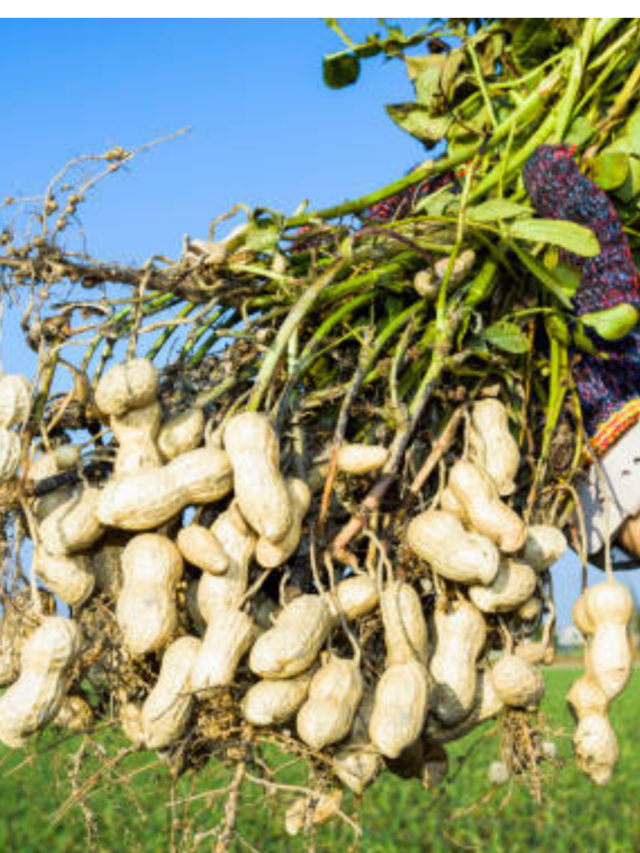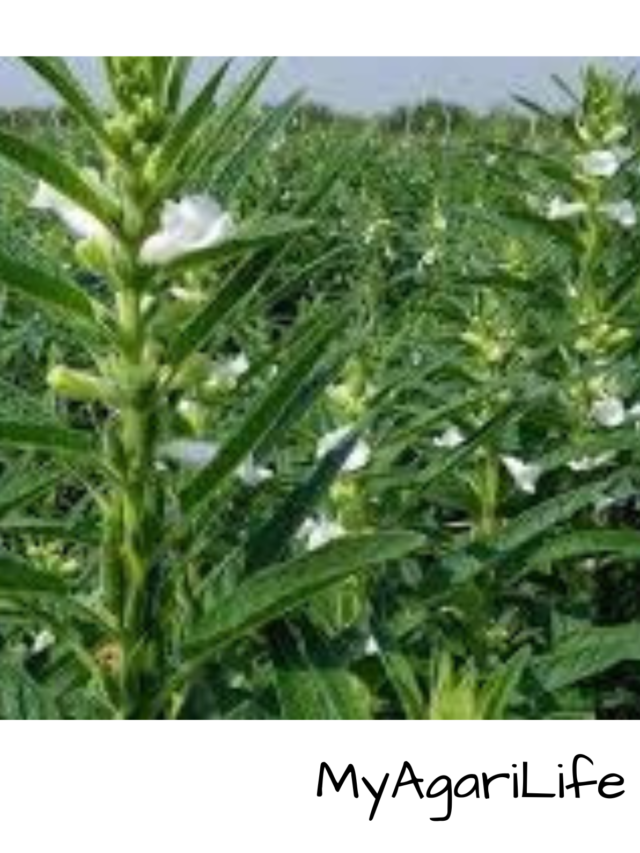1.Introduction
2.Eligibility Criteria for PKVY
3.Organic Farming Practices Supported by PKVY
4.Financial Assistance and Incentives under PKVY
I5.mplementation and Monitoring Mechanism
6.Challenges and Future Scope of PKVY
7.Related Government Initiatives and Programs
8.Frequently Asked Questions (FAQs)
9.Conclusion
10.References
Introduction
Paramparagat Krishi Vikas Yojana (PKVY) is a government initiative launched by the Ministry of Agriculture and Farmers Welfare in India. The program aims to promote and encourage organic farming practices among Indian farmers. PKVY focuses on enhancing soil fertility, promoting biodiversity, and minimizing the use of synthetic chemicals in agriculture.

The term “Paramparagat Krishi” translates to “traditional agriculture,” indicating the program’s emphasis on traditional and indigenous farming practices. The objective of PKVY is to support and incentivize farmers to adopt organic farming methods and reduce their dependence on chemical inputs, ultimately leading to sustainable and environmentally friendly agriculture.
Key Features and Benefits of PKVY:
1.Financial Assistance: Under PKVY, eligible farmers receive financial support and subsidies for adopting organic farming practices. This assistance covers activities such as the procurement of organic inputs, training and capacity building, and the establishment of necessary infrastructure.
2.Capacity Building: PKVY provides farmers with training programs, workshops, and demonstrations to enhance their knowledge and skills in organic farming techniques. This helps them understand the principles of organic agriculture, composting, seed treatment, pest and disease management, and soil health management.
3.Certification Support: The program assists farmers in obtaining organic certification for their produce. Organic certification adds value to the farmers’ products, ensuring they meet the quality standards required for organic markets. PKVY facilitates the certification process by covering the costs associated with certification and providing guidance on compliance.
4.Market Linkages: PKVY aims to create market linkages for organic farmers, connecting them with organic food processors, retailers, and exporters. This helps farmers secure a fair price for their organic produce and promotes the growth of organic markets.
5.Environmental Conservation: By promoting organic farming practices, PKVY contributes to the conservation of soil health, biodiversity, and the overall environment. Organic farming reduces soil erosion, preserves water quality, and minimizes the negative impacts of chemical-based agriculture on ecosystems.
6.Health Benefits: Organic farming practices encouraged by PKVY promote the production of chemical-free and pesticide-free food. This has health benefits for both farmers and consumers, as it reduces exposure to harmful chemicals and encourages the consumption of nutritious, organic produce.
PKVY has made significant strides in transforming agriculture towards a more sustainable and ecologically balanced system. By incentivizing and supporting farmers in adopting organic farming practices, the program contributes to the overall well-being of farmers, the environment, and consumers alike.
Eligibility Criteria for PKVY
The eligibility criteria for farmers to participate in the Paramparagat Krishi Vikas Yojana (PKVY) are as follows:
1.Farmer Category: PKVY is primarily targeted towards small and marginal farmers, as well as tribal farmers. These farmers are given priority in the selection process. However, other categories of farmers can also participate in the program.
2.Land Requirement: The farmer should have a minimum of 0.5 hectares of agricultural land available for organic farming. This land should be contiguous or nearby to facilitate better management and monitoring of organic practices.
3.Registration: The farmer must register for PKVY at the designated implementing agency or the local agricultural department. The registration process may vary depending on the specific requirements set by the state government.
4.Certification: Farmers should be willing to follow organic farming practices as per the standards and guidelines set by the Participatory Guarantee System for India (PGS-India) or any other recognized organic certification agency. This includes refraining from the use of synthetic chemicals, adopting natural pest and disease management practices, and implementing soil health management techniques.
5.Documentation: Farmers need to provide necessary documentation, such as land ownership proof, identity proof, and bank account details, as per the requirements of the implementing agency. These documents are essential for verification and disbursal of financial assistance.
6.Commitment and Compliance: Participating farmers are required to commit to following organic farming practices for a specific period. They should adhere to the guidelines and standards set by PKVY and actively participate in training and capacity-building programs organized by the implementing agency.
It is important to note that specific eligibility criteria and requirements may vary from state to state or region to region within India. Farmers interested in participating in PKVY should contact their local agricultural department or implementing agency to get detailed information about the eligibility criteria and the application process specific to their area.
Organic Farming Practices Supported by PKVY
Paramparagat Krishi Vikas Yojana (PKVY) supports and promotes a range of organic farming practices to enhance soil fertility, conserve biodiversity, and minimize the use of synthetic chemicals. Here are some of the organic farming practices encouraged under PKVY:
1.Crop Rotation: PKVY emphasizes the practice of crop rotation, where different crops are cultivated in a specific sequence on the same land. Crop rotation helps break pest and disease cycles, improves soil structure, and enhances nutrient availability.
2.Mixed Cropping and Intercropping: PKVY encourages mixed cropping and intercropping, which involve growing multiple crops together in the same field. This practice promotes biodiversity, reduces pest pressure, maximizes space utilization, and improves soil fertility through complementary interactions among crops.
3.Green Manure and Cover Crops: Farmers are encouraged to incorporate green manure and cover crops into their farming systems. Green manure involves growing specific plants (such as legumes) and then plowing them into the soil to enrich it with organic matter and nitrogen. Cover crops are grown between cash crops to protect the soil from erosion, suppress weeds, and improve soil health.
4.Organic Inputs: PKVY promotes the use of organic inputs, such as organic manure (compost, vermicompost), farmyard manure, and biofertilizers. These natural inputs provide essential nutrients to the soil and plants, enhance soil fertility, and support sustainable crop production.
5.Biopesticides and Biocontrol Agents: Farmers are encouraged to adopt biopesticides and biocontrol agents for pest and disease management. Biopesticides are derived from natural sources (like plant extracts, beneficial microorganisms) and are safer alternatives to chemical pesticides. Biocontrol agents, such as predatory insects, parasitic wasps, and microbial agents, help control pests and diseases in an eco-friendly manner.
6.Indigenous Seed Preservation: PKVY promotes the conservation and use of indigenous and traditional seed varieties. These seeds are well-adapted to local conditions, contribute to biodiversity conservation, and help preserve traditional agricultural practices.
7.Soil Health Management: Soil health management practices, including the use of organic amendments, maintaining soil cover, and minimizing soil erosion, are emphasized under PKVY. Soil testing and analysis are encouraged to assess nutrient levels and guide the application of organic inputs.
8.Water Conservation: PKVY encourages farmers to adopt water conservation measures, such as rainwater harvesting, drip irrigation, mulching, and proper water management practices. Efficient water use helps conserve this vital resource and supports sustainable agricultural production.
It’s important to note that PKVY emphasizes the adoption of a holistic approach to organic farming, focusing on integrating multiple practices that support agroecosystem health and sustainability. Farmers participating in PKVY receive training, guidance, and technical support to implement these organic farming practices effectively.
Financial Assistance and Incentives under PKVY
Paramparagat Krishi Vikas Yojana (PKVY) offers financial assistance and incentives to farmers who adopt organic farming practices. Here are the key financial support mechanisms and incentives provided under PKVY:

1.Financial Assistance for Inputs: PKVY provides financial support for the procurement of organic inputs such as organic manure, biofertilizers, biopesticides, and other natural inputs required for organic farming. The specific subsidy amount may vary depending on the region and the inputs being utilized.
2.Training and Capacity Building: PKVY conducts training programs, workshops, and capacity-building activities for farmers to enhance their knowledge and skills in organic farming practices. The costs associated with these training programs, including travel expenses and training materials, are covered by PKVY.
3.Certification Assistance: PKVY assists farmers in obtaining organic certification for their produce. The program covers a portion of the certification costs, making it more accessible and affordable for farmers. Organic certification adds value to the farmers’ products, enabling them to access organic markets and fetch premium prices.
4.Infrastructure Development: PKVY provides financial support for the development of necessary infrastructure related to organic farming. This may include setting up vermicompost units, organic manure production units, seed banks, and other infrastructure required for organic farming practices.
5.Market Linkages: PKVY aims to create market linkages for organic farmers, connecting them with organic food processors, retailers, and exporters. This helps farmers secure a fair price for their organic produce and ensures market access. PKVY may facilitate market collaborations, organize buyer-seller meets, and provide market information and guidance to farmers.
6.Support for Participatory Guarantee System (PGS): PKVY supports farmers in implementing and participating in the Participatory Guarantee System (PGS) for organic certification. PGS is a locally managed organic certification system that involves peer inspections and promotes trust among farmers and consumers. PKVY covers the costs associated with PGS implementation and verification.
7.Knowledge Exchange and Exposure Visits: PKVY organizes exposure visits and exchange programs for farmers, enabling them to learn from successful organic farmers, experts, and institutions. These visits provide valuable insights into organic farming practices, marketing strategies, and success stories, fostering learning and inspiration among farmers.
It’s important to note that the specific financial assistance and incentives offered under PKVY may vary based on state policies, budget allocations, and implementation guidelines. Farmers interested in availing these benefits should contact the local agricultural department or implementing agency responsible for PKVY in their region for detailed information and assistance.
Implementation and Monitoring Mechanism
The implementation and monitoring mechanism of the Paramparagat Krishi Vikas Yojana (PKVY) involves various stakeholders and follows a structured approach to ensure effective execution and compliance with organic farming practices. Here is an overview of the implementation and monitoring mechanism of PKVY:
1.National and State-level Agencies: The Ministry of Agriculture and Farmers Welfare is responsible for formulating policies and guidelines for PKVY at the national level. At the state level, the State Department of Agriculture or the designated state agency oversees the implementation of PKVY.
2.Implementing Agencies: PKVY works through designated implementing agencies, such as Agricultural Technology Management Agencies (ATMAs), Krishi Vigyan Kendras (KVKs), State Agriculture Departments, and other agricultural extension agencies. These agencies are responsible for providing technical support, training, capacity building, and financial assistance to farmers.
3.Registration and Selection of Farmers: Farmers interested in participating in PKVY need to register with the designated implementing agency. The agency verifies the eligibility criteria, such as land ownership and farmer category, and selects eligible farmers based on available resources and priorities. The registration process may vary from state to state.
4.Training and Capacity Building: PKVY conducts training programs, workshops, demonstrations, and field visits to enhance farmers’ knowledge and skills in organic farming practices. These capacity-building activities are conducted by implementing agencies in collaboration with agricultural experts, scientists, and organic farming practitioners.
5.Technical Assistance: Implementing agencies provide technical assistance to farmers regarding the adoption and implementation of organic farming practices. This includes guidance on crop selection, seed treatment, composting, pest and disease management, soil health management, water conservation, and other relevant aspects.
6.Monitoring and Evaluation: PKVY has a robust monitoring and evaluation system to ensure compliance with organic farming practices and track the progress of implementation. Implementing agencies conduct regular monitoring visits to farmers’ fields to assess adherence to organic farming principles, evaluate the impact, and provide feedback and guidance to farmers.
7.Participatory Guarantee System (PGS): PKVY promotes the implementation of the Participatory Guarantee System (PGS) for organic certification. PGS involves farmers inspecting and certifying each other’s farms based on mutually agreed-upon standards. The PGS groups conduct regular inspections, peer reviews, and certification processes, ensuring the integrity of organic practices.
8.Reporting and Documentation: Implementing agencies maintain records and documentation of farmers’ participation, activities undertaken, inputs provided, and financial assistance disbursed. These records are crucial for monitoring progress, evaluation, and reporting to higher authorities.
9.Knowledge Sharing and Collaboration: PKVY encourages knowledge sharing and collaboration among farmers, experts, and institutions. Successful organic farmers and experts are invited to share their experiences through workshops, seminars, farmer-to-farmer interactions, and exposure visits, fostering learning and dissemination of best practices.
The implementation and monitoring mechanism of PKVY aim to ensure proper execution, adherence to organic farming practices, and continuous support to farmers throughout the program. Farmers are encouraged to actively engage with the implementing agencies, attend training programs, and actively participate in the monitoring and evaluation activities to derive maximum benefits from PKVY.
Challenges and Future Scope of PKVY
Paramparagat Krishi Vikas Yojana (PKVY) has made significant contributions to promoting organic farming practices in India. However, there are still challenges to overcome and future scope for further improvement. Here are some of the challenges and future possibilities for PKVY:
1.Challenges:
1.Awareness and Adoption: One of the key challenges is creating awareness among farmers about the benefits of organic farming and motivating them to adopt organic practices. Many farmers are still unaware of the advantages of organic farming or face challenges in transitioning from conventional to organic methods.
2.Access to Inputs and Resources: Availability and accessibility of organic inputs, such as organic manure, biofertilizers, and biopesticides, can be a challenge for farmers, particularly in remote areas. Ensuring a steady supply of quality organic inputs at affordable prices is crucial for the success of PKVY.
3.Technical Knowledge and Training: Building the technical knowledge and skills of farmers in organic farming practices is essential. Continuous training and capacity-building programs need to be conducted to enhance farmers’ understanding of organic techniques, soil health management, pest and disease control, and other aspects of organic farming.
4.Market Linkages and Price Premium: While PKVY aims to create market linkages for organic farmers, accessing organic markets and fetching premium prices for organic produce can be a challenge. Strengthening market linkages, establishing market infrastructure, and promoting consumer awareness about organic products are necessary to ensure economic viability for farmers.
5.Monitoring and Certification: Effective monitoring and certification of organic farms can be a challenge. Ensuring compliance with organic standards, conducting regular inspections, and maintaining the integrity of the certification process require adequate resources and well-trained personnel.
2.Future Scope:
1.Expansion and Scaling-Up: PKVY can be expanded and scaled-up to reach more farmers across different regions of the country. Increased budget allocation, wider implementation, and better coordination among stakeholders can help extend the program’s coverage and impact.
2.Research and Innovation: Investing in research and innovation related to organic farming practices can further enhance the effectiveness and efficiency of PKVY. Research on crop varieties, organic pest and disease management, soil health improvement, and sustainable agricultural practices can provide valuable insights and support the growth of organic farming.
3.Technology Adoption: Leveraging technology in PKVY can improve monitoring, data collection, and dissemination of information. Utilizing mobile applications, remote sensing, and digital platforms can help farmers access information, receive real-time guidance, and connect with experts and fellow farmers.
4.Value Addition and Processing: Promoting value addition and processing of organic produce can create additional income opportunities for farmers. Encouraging the establishment of organic food processing units, facilitating value chain development, and promoting organic product branding can enhance the economic viability of organic farming.
5.Policy Support: Continuous policy support from the government, including favorable regulations, subsidies, and incentives, is crucial for the long-term success of PKVY. Ensuring a conducive policy environment for organic farming can attract more farmers to adopt organic practices and support the growth of the organic sector.
Addressing these challenges and exploring the future scope of PKVY will contribute to the sustainable development of organic farming, enhance farmers’ livelihoods, and promote environmentally friendly agricultural practices in India.
Related Government Initiatives and Programs
In addition to the Paramparagat Krishi Vikas Yojana (PKVY), the Indian government has launched several other initiatives and programs to support agricultural development, enhance farmer welfare, and promote sustainable farming practices. Some of these related government initiatives and programs are:
1.Rashtriya Krishi Vikas Yojana (RKVY): RKVY is a flagship program of the Indian government aimed at enhancing public investment in agriculture and allied sectors. It provides financial support to states and union territories for implementing agriculture-related projects, including infrastructure development, research and extension, capacity building, and technology dissemination.
2.Pradhan Mantri Krishi Sinchayee Yojana (PMKSY): PMKSY focuses on promoting efficient water use in agriculture through various interventions, including the development of irrigation infrastructure, water conservation, watershed management, and micro-irrigation techniques. It aims to ensure “Har Khet Ko Pani” (water for every field) and enhance water efficiency in the agricultural sector.
3.Soil Health Card Scheme: The Soil Health Card Scheme aims to provide farmers with information about the nutrient status of their soil and recommendations for appropriate fertilizer application. The scheme helps farmers make informed decisions about nutrient management, soil health improvement, and sustainable farming practices.
4.National Mission for Sustainable Agriculture (NMSA): NMSA focuses on promoting sustainable agriculture practices, climate-resilient farming, soil and water conservation, and the use of organic inputs. It supports initiatives such as organic farming, agroforestry, precision farming, crop diversification, and promotion of climate-smart agriculture.
5.National Mission on Oilseeds and Oil Palm (NMOOP): NMOOP aims to increase the production of oilseeds and oil palm to reduce the country’s dependence on imports. It promotes the adoption of improved varieties, hybrid seeds, efficient cultivation practices, and value addition in the oilseed sector.
6.National Agricultural Market (e-NAM): e-NAM is an online platform that facilitates the integration of agricultural markets across the country. It enables farmers to sell their produce directly to buyers and access transparent price discovery, reducing intermediaries and enhancing farmers’ income.
7.National Mission on Sustainable Agriculture (NMSA): NMSA focuses on promoting sustainable agriculture practices, climate-resilient farming, soil and water conservation, and the use of organic inputs. It supports initiatives such as organic farming, agroforestry, precision farming, crop diversification, and promotion of climate-smart agriculture.
These initiatives and programs, along with PKVY, collectively aim to enhance agricultural productivity, promote sustainable farming practices, improve farmers’ livelihoods, and ensure food security in India. They reflect the government’s commitment to supporting the agriculture sector and addressing key challenges faced by farmers.
Frequently Asked Questions (FAQs)
Here are some frequently asked questions (FAQs) related to Paramparagat Krishi Vikas Yojana (PKVY):
1.What is PKVY?
PKVY, short for Paramparagat Krishi Vikas Yojana, is a government initiative in India that promotes organic farming practices among farmers. It aims to improve soil health, protect the environment, and enhance the livelihoods of farmers through the adoption of organic agriculture.
2.Who is eligible to participate in PKVY?
Farmers who own or cultivate agricultural land can participate in PKVY. Both individual farmers and groups of farmers, such as Self-Help Groups (SHGs), Joint Liability Groups (JLGs), and Farmer Producer Organizations (FPOs), are eligible to apply.
3.How can farmers apply for PKVY?
Farmers can apply for PKVY by contacting the designated implementing agency in their respective state or region. The agency will provide application forms and guide farmers through the registration process.
4.What kind of financial assistance is provided under PKVY?
PKVY provides financial assistance to farmers for procuring organic inputs such as organic manure, biofertilizers, biopesticides, and other natural inputs required for organic farming. The specific subsidy amount may vary based on the region and inputs being utilized.
5.Are training and capacity-building programs offered under PKVY?
Yes, PKVY conducts training programs, workshops, and capacity-building activities for farmers. These programs aim to enhance farmers’ knowledge and skills in organic farming practices, soil health management, pest and disease control, and other relevant aspects.
6.Does PKVY assist in obtaining organic certification?
Yes, PKVY supports farmers in obtaining organic certification for their produce. The program covers a portion of the certification costs, making it more accessible and affordable for farmers. Organic certification adds value to the farmers’ products, enabling them to access organic markets and fetch premium prices.
7.How is PKVY monitored and evaluated?
PKVY has a monitoring and evaluation system in place to assess the implementation and impact of the program. Implementing agencies conduct regular monitoring visits to farmers’ fields to assess adherence to organic farming practices, evaluate the progress, and provide feedback and guidance to farmers.
8.What is the Participatory Guarantee System (PGS) under PKVY?
PKVY promotes the implementation of the Participatory Guarantee System (PGS) for organic certification. PGS is a locally managed organic certification system that involves peer inspections and promotes trust among farmers and consumers. PKVY covers the costs associated with PGS implementation and verification.
9.Are there market linkages for organic farmers under PKVY?
PKVY aims to create market linkages for organic farmers, connecting them with organic food processors, retailers, and exporters. This helps farmers secure a fair price for their organic produce and ensures market access. PKVY may facilitate market collaborations, organize buyer-seller meets, and provide market information and guidance to farmers.
These FAQs provide some basic information about PKVY and its implementation. For more detailed and specific information, it is recommended to contact the designated implementing agency or consult the official documentation and guidelines of PKVY in your region.
Conclusion
In conclusion, the Paramparagat Krishi Vikas Yojana (PKVY) is a significant government initiative in India aimed at promoting organic farming practices. It provides financial assistance, training, capacity building, and market linkages to farmers who adopt organic agriculture. Through PKVY, farmers are encouraged to embrace sustainable farming methods, enhance soil health, protect the environment, and improve their livelihoods.
PKVY addresses various challenges associated with conventional farming practices and offers a pathway for farmers to transition towards organic farming. It emphasizes the use of natural inputs, minimizes the use of synthetic chemicals, and encourages the preservation of traditional agricultural knowledge and practices.
While PKVY has made notable progress in promoting organic farming, there are ongoing challenges that need to be addressed. These include raising awareness among farmers, ensuring access to quality organic inputs, strengthening market linkages, and addressing technical and infrastructural requirements. The future scope of PKVY lies in scaling up the program, investing in research and innovation, leveraging technology, and aligning with other government initiatives for holistic agricultural development.
PKVY is a significant step towards sustainable agriculture and contributes to the overall goal of achieving food security, enhancing farmer welfare, and preserving the environment. By supporting organic farming practices, PKVY plays a vital role in building a resilient and sustainable agricultural sector in India.
Reference
Here is a reference website for Paramparagat Krishi Vikas Yojana (PKVY):
Ministry of Agriculture and Farmers Welfare, Government of India:
Website: https://agricoop.nic.in/programmes-schemes/paramparagat-krishi-vikas-yojana-pkvy
The official website of the Ministry of Agriculture and Farmers Welfare provides comprehensive information about PKVY, including program details, guidelines, eligibility criteria, implementation process, and contact information. It is the most reliable and up-to-date source of information regarding PKVY.
Please note that the provided website is based on the information available up to my knowledge cutoff in September 2021. It’s always recommended to visit the official government websites for the most recent and accurate information on PKVY.









